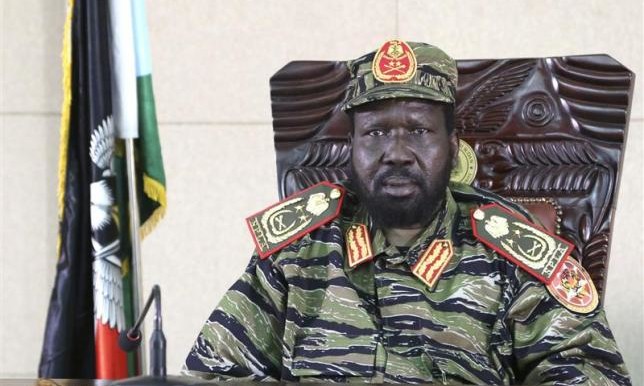A group of South Sudanese diaspora leaders in four countries have accused President Salva Kiir of inciting violence and warned that he “holds command responsibility and ultimate accountability for all atrocities and crimes against humanity committed by his forces.”
The group of Equatorian Diaspora leaders issued a press statement today responding to a speech Kiir made last month threatening violence against Equatorians.
Federico Vuni, Equatorian Community Leader in the UK, together with three other diaspora leaders said that “The remarks amount to incitement to violence against Equatorians. We are horrified that the international community failed to condemn these statements.”
He added, “Precedent shown that whenever statements are made by President Kiir, tragic consequences have always followed. One such example was President Kiir’s threat to journalists in August 2015. This is widely understood to have inspired the murder of journalist Mr Peter Julius Moi, a few days later.”
“We believe that the remarks provide further confirmation that President Kiir is not a national leader. Instead, President Kiir acts in a manner akin to that of a tribal leader. As such, we are forced to conclude that he is unfit to rule a country which is as ethnically and culturally diverse as South Sudan,” reads the statement by the diaspora leaders.
The other signatories to the statement are Kwaje Lasu, Equatorian Community Leader in the USA, Joseph Modi, Equatorian Community Leader in Canada and William Orule, Equatorian Community Leader in Australia.
They said that their people do not want to participate in the ongoing civil war but the government has forced violence upon them.
“For two years the people of Equatoria refused to take part in the civil war. They sought to mediate and championed a peaceful settlement through dialogue and compromise. It is unfortunate that Kiir’s government refused to acknowledge this effort. Instead they carried the war to Equatoria. It is our firm belief that the people of Equatoria are only responding in self-defence against combatants who made it clear through their actions that they make no distinction between resistance forces operating in Equatoria and unarmed civilians who call Equatoria their home,” reads the statement.
“The consequences have been tragic. Uganda is now home to the fourth largest refugee population in the world. Thousands of families have fled their country in search of sanctuary from indiscriminate aggression and brutality of their own government and its forces.”
They went on to warn of plans for a coming dry season offensive.
“We noted the continued rejection of the UN mandated Regional Protection Force by Kiir’s government. This is clearly intended to keep an open window of opportunity, so that government forces may have free reign in the dry season to wage war against the people of Equatoria.”
South Sudan’s minister of information and minister of cabinet affairs have hinted at plans for military offensives in Equatoria this dry season, as has Kiir himself.
Vuni and the other diaspora leaders stated, “We are obligated to remind President Kiir, that whether he decides to relocate to Yei, as a threat or whether he remains ensconced in Juba, that he is Commander-in-Chief of the SPLA and its allied militias. As such, he holds command responsibility and ultimate accountability for all atrocities and crimes against humanity committed by his forces.”
Meanwhile, the UN High Commissioner for Human Rights has called the same speech by President Salva Kiir ‘concerning,’ saying, “The statement has widely been interpreted as ethnically driven.”
File photo: Salva Kiir in December 2013




